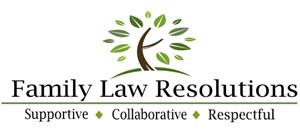Lifting You Up Or Putting You Down

Can you really divorce with dignity?
By, Felicia Soleil, Attorney/Mediator
“Dignity” and “Divorce”. Two words you might not expect to be used together. Is it really possible to get divorced with your dignity intact?
Webster’s defines dignity as “the quality of being worthy, honored, respected.” I suggest that you not only hope to be treated as such by your soon-to-be former intimate partner, but also by the process in which you participate, and the professionals you employ to assist you though that process.
Let’s start with process options to obtain a divorce. You can elect to work through a process together using a neutral professional in mediation, or using two collaboratively trained lawyers in Collaborative Law. Or you can hire lawyers and negotiate your issues without ever being in the same room together with your spouse. What matters is how you feel you are treated by all the players.
Here’s what dignity can look like in mediation. You and your spouse meet with a trained professional who warmly welcomes you, provides you positive encouragement for the fact that you are agreeing to face a difficult situation together, and makes you feel at ease and less anxious and overwhelmed. The mediator clearly spells out the steps you will need to take from start to finish, let’s you know what potential challenges you can anticipate, and provides reassurance that everything can be resolved.
Dignity is apparent in Collaborative Law when each attorney acknowledges the other party’s needs and provides validation to both party’s perspectives. Also, the attorneys treat each other with respect and demonstrate how to disagree and share different perspectives and legal opinions with collegial discourse.
When opting for two independent attorneys outside of a joint-meeting based process, dignity can be applied in the tone of correspondence between both attorneys with regard to how they refer to each party, and in legal pleadings and in the courtroom, where the attorneys agree to not personally disparage each other or their opposing party. They focus on the legal issues and options for generating solutions, even if a solution has to be involving the court, but avoid personalizing the case.
Family law is ripe for disparaging personalization. It is often up to the professionals to set the tone when faced with parties going through an emotionally difficult transition in their personal lives. However, you can be instrumental in setting the tone if you feel your chosen professionals are crossing the line into disrespectful treatment of you or your spouse. On several occasions, I have had new clients come to me after discharging a prior professional because they were uncomfortable with that professional’s demeanor and “strategy.” There has already been enough hurt to go around and they don’t want the professionals to add to it. They are often worn down and want to get through it with their collective dignities intact.
Clients often initially come in stating things like, “We want to remain friends, we just don’t know how to do this,” or “We don’t want the process to make things worse. We’re not ready to be friends yet, but we want each of us to be treated with dignity while we separate.” Looking into your post-divorce future, you probably won’t remember the details of the outcome, but you will most likely remember how you were treated by the process and the professionals you chose as your guides. Dignity matters.
Felicia Soleil is a family law attorney and mediator. She helps her clients in achieving resolutions that foster both a compassionate ending to their union and a healthy new beginning for them and their families so they can focus on moving on, rather than simply moving out. Felicia can be reached at 253-853-6940. All consultations are strictly confidential.
Published on March 1, 2020
